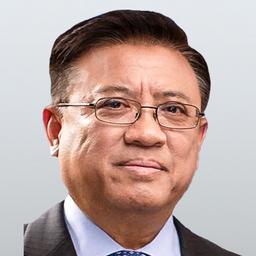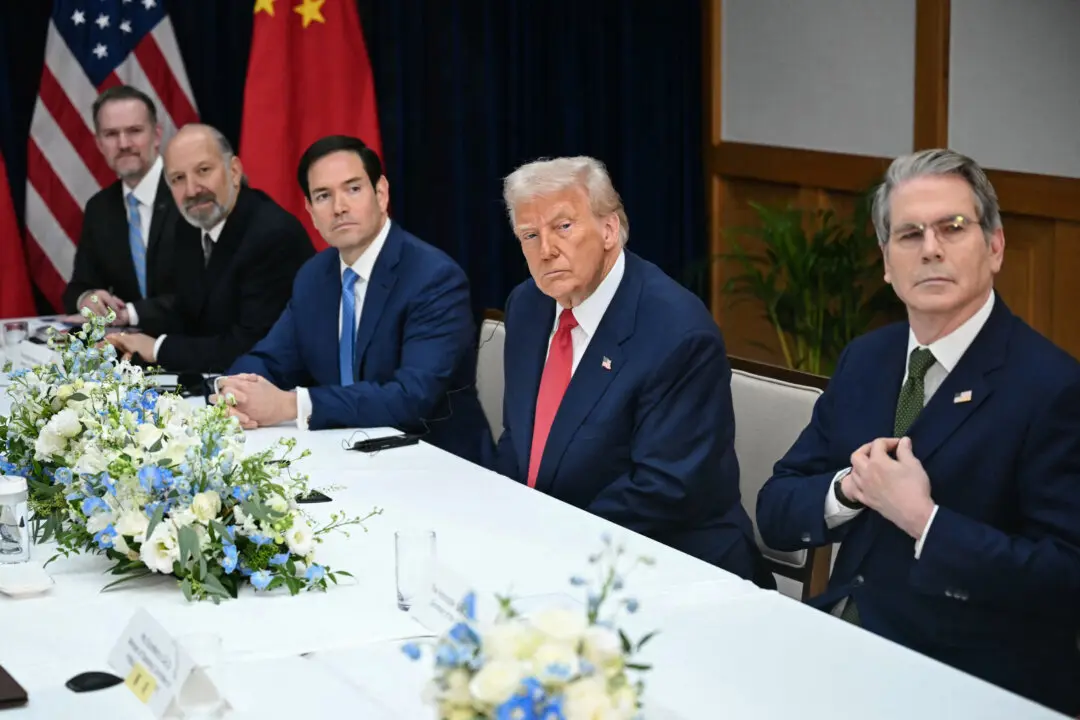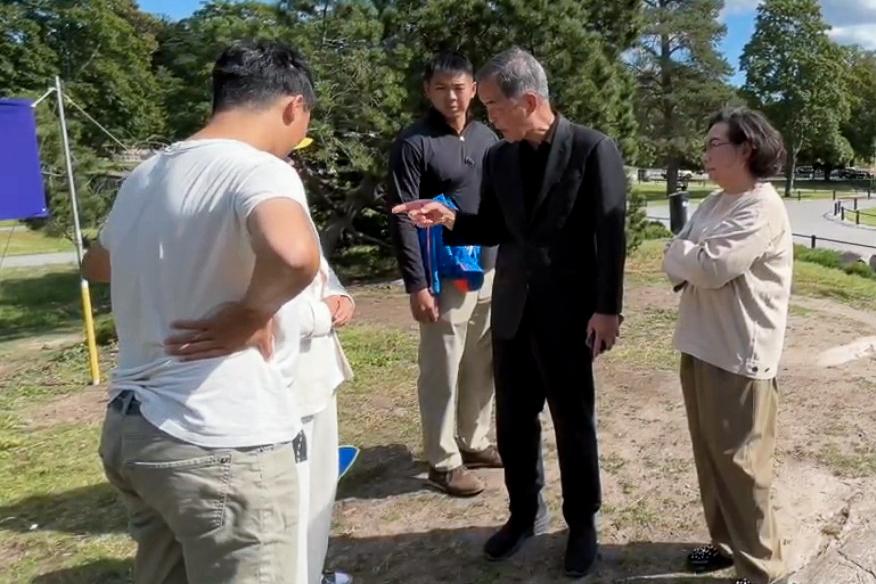The mystery of a disappeared democracy activist in China was recently solved: although healthy, he has spent the last 5 years locked up in a mental hospital. A leader in articulating a democratic future for China, this patient is now a symbol of one of the more terrifying methods the Chinese regime is using to shut down dissidents.
Dr. Ma Jinchun learned of this missing activist when Ma was transferred from Internal Medicine to Psychiatry at the Shanghai Civil Affairs First Psychiatric Center. He overheard someone say there was a patient who had been sent by the police.
Out of curiosity, Ma sought out the patient named Qiao Zhongling. After thorough testing and observation, Ma determined that Qiao was a normal person without any mental problems. What Qiao had were a set of ideas the Chinese Communist Party (CCP) cannot tolerate. Over the past five years, Qiao has been in three different mental hospitals.
Each time, the doses of psychiatric drugs have been increased, and the large doses are damaging Qiao’s health. “Qiao shouldn’t be in a mental hospital,” Ma said. “He should be a professor.”
Acting on his professional judgment and according to the requirements of his Christian faith, Ma decided to help Qiao.
Ma started to talk to the hospital’s directors and senior doctors about Qiao’s diagnosis and treatment. The hospital vice president told him that nobody could change the diagnosis because it was not made by the hospital but by the police.
The most respected senior doctor told him that at the present time only those who have mental problems would have ideas opposing the Communist Party. Ma was warned not to touch Qiao’s case again.
Fearing Qiao’s life is in danger, Ma came to the United States, hoping an appeal to the international community would help. He found Jin Zhong, the chief editor of Hong Kong’s Open magazine and the person outside China who probably knows Qiao best.
Most people living in Shanghai in late 1970s should have heard of Qiao Zhongling. After the Cultural Revolution, there was a movement in China to discuss and demand democracy. In Beijing, it was known as the “Democracy Wall,” while in Shanghai, it was called the “Democracy Forum.”
Activists gave speeches at Shanghai’s People’s Square where thousands of people listened and discussed. Qiao was there and gave speeches almost every day. But it didn’t last long. When Deng Xiaoping decided to crack down on this democracy movement, Qiao was arrested.
After serving three years in jail, Qiao found himself with no job, and all his friends and relatives avoided him. He was constantly under the surveillance of Public Security, was harassed, and even forced by the police to spy on other activists.
Qiao visited Hong Kong in 2001. Jin Zhong interviewed him and published an article about him in the May 2001 issue of Open Magazine. That detailed account was probably the only story that had been published about Qiao. Qiao went back to Shanghai the same month the article was published.
Method of Persecution
Psychiatric abuse as a method of persecution is common in China. However, it wasn’t always like that. During the first 30 years of communist rule, there was no need to use mental hospitals to persecute the “enemies of the Party.” The common methods used were execution, imprisonment, and supervision. Besides, if counterrevolutionaries were labeled mental patients, any punishment, no matter how severe, wouldn’t intimidate others, who would assume the victims were mentally ill, not politically incorrect.With the end of Mao era, class struggle was no longer the right pretext for persecuting people. But neither was there any need to establish a new tool for persecution. There were rare reports that normal people had been sent to the mental hospitals for conflicts with the authorities, but psychiatric abuse was never systematically used.
Wang Wanxing was a typical example. On June 3, 1992, one day before the three-year anniversary of the Tiananmen Square massacre, Wang unfolded a banner demanding the student-led democracy movement be redressed—the participants no longer considered as guilty in the eyes of the Party. He was put into a mental hospital for 13 years.
This situation changed completely in 1999. In July that year, when Jiang Zemin initiated his campaign against the spiritual practice of Falun Gong, he faced many challenges. Two in particular were: the large number of Falun Gong practitioners and the lack of any legal basis to suppress them. Suddenly, there was an urgent need for extralegal measures to handle millions of Falun Gong practitioners. Forced labor camps, brainwashing centers, and mental hospitals became tools of persecution.
When and how exactly the widespread use of mental hospitals in this way started is not clear. The first case was reported on Jan. 2, 2000, on the Falun Gong website Minghui.org, “On December 16, 1999, Beijing Fangshan Chengguan Police Station sent over 50 Falun Gong practitioners to Zhoukoudian Mental Hospital without going through any legal or medical procedures.”
The New York Times also reported on the case. A spokesman for the police station told Agence France-Presse, “They are not patients, they are there to be re-educated.” Even though in this case the mental hospital was used as a place of detention, it showed that the mental hospitals were being used to persecute Falun Gong practitioners.
The first psychiatric abuse case of a Falun Gong practitioner was reported one month later. Mr. Huang Jinchun, a civil court judge in Beihai City in southern China’s Guangxi Zhuang Autonomous Region, was tortured for two months in the Longxiangshan Mental Hospital.
In a report published in February 2000, on Minghui, Huang wrote, “Because of the injected drugs, I felt exhausted, sleepy yet restless, and unsettled all day long. They laughed at me: ‘Did you say you practice Falun Gong? Which one is more powerful, Falun Gong or the drugs?’”
Psychiatric abuse cases were continuously reported in the following months. There were enough cases for the international psychiatric society to raise concerns during the Second Annual Sino-American Meeting on Psychiatry, held in Beijing in April 2000. Chinese doctors rejected the accusations, as usual.
However, the reason they gave was far from convincing. A Chinese psychiatric expert who asked to remain anonymous said, “Before, psychiatry in China was so unimportant that it has never had the good fortune to be used as a tool in a political campaign. Before, if they wanted to persecute someone, they had absolutely no need to play such a civilized game.”
The anonymous doctor simply indicated the regime had not felt the need to use psychiatry to persecute, but now it did. According to Wang Wanxing, one reason for his release was the campaign against Falun Gong.
Since 1999, so many Falun Gong practitioners had been put in mental hospitals as to arouse international attention and pressure. That pressure made possible his release. Wang’s case also suggests that the systematic use of the mental hospitals as tools of repression started with the persecution of Falun Gong.
In April 2004, the World Organization to Investigate Persecution of Falun Gong (WOIPFG) surveyed over 100 psychiatric hospitals in 15 provinces in China. Eighty-three percent of them admitted that they had “admitted and treated” Falun Gong practitioners, and more than 50 percent stated that those practitioners had no mental problems and were being held expressly for the purpose of forcing them to give up their beliefs.
Many of them were sent to hospitals by the police or local authorities. A doctor at the Liaoyang City Psychiatric Hospital told the investigator that the hospital used more than 10 methods, including psychiatric drugs, to force Falun Gong practitioners to give up their beliefs.
Convenience
The CCP finds putting Falun Gong practitioners into mental hospitals convenient because there are no legal procedures. The police or the local authorities or even family members under police pressure can send practitioners to a hospital, and the hospital can’t refuse. The police even decide the diagnosis.This use of mental hospitals also limits society’s sympathy and support for the victims. Dr. Abraham Halpern, president of the American Academy of Psychiatry and the Law, commented to Psychiatric News in 2000 that the Chinese government wants to discredit Falun Gong practitioners by labeling them as mentally ill and dangerous.
The regime found the use of mental hospitals for persecution so convenient it quickly began targeting a much wider population. Petitioners, human rights activists, and dissidents all became victims. During a 2010 meeting, the Ministry of Public Security (MPS) decided that every province Public Security Bureau must have at least one Ankang Hospital (a mental hospital run by the police at the provincial level).
Between 1998 and this Public Security meeting, the Ankang system treated more than 40,000 patients.
At that meeting, the MPS formally stated, “Without the approval of the Public Security agencies, no nonpsychiatric patient can be admitted [into mental hospital].” In other words, the abuse of admitting nonpsychiatric patients to mental hospitals is limited to the police.
The World Psychiatric Association tried to investigate the alleged psychiatric abuse of Falun Gong practitioners and even reached an agreement with its Chinese counterpart, the Chinese Society of Psychiatrists. However, in 2004 the Chinese Society canceled the agreement at the last minute.
The World Psychiatric Association should redouble its efforts. The international community still has the responsibility to stop the ongoing psychiatric abuse of Falun Gong practitioners and other innocent people in China. It’s never too late to investigate crimes against humanity and bring the perpetrators to justice.





